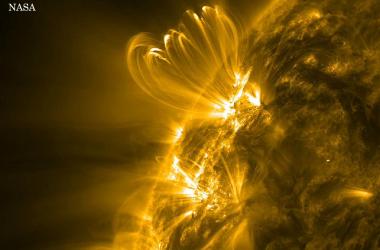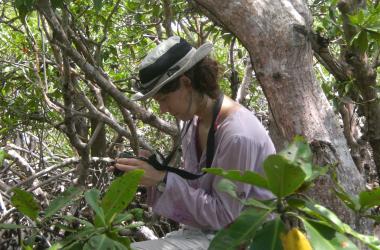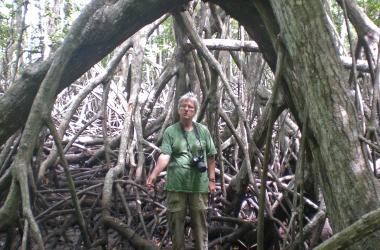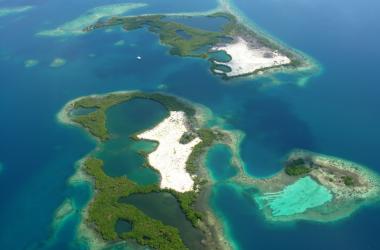There is more carbon dioxide (CO2) in the atmosphere today than there has been for 3 million years. Greenhouse gases like carbon dioxide, methane and nitrous oxide trap heat in Earth’s atmosphere, triggering worldwide changes in climate.
Earth’s climate has always changed, but the changes today are occurring at a faster rate than at any time in the planet’s history. Before the Industrial Revolution, atmospheric concentrations of CO2 hovered around 280 parts per million. In 2015, the yearly average passed 400 parts per million, based on measurements from NOAA's Mauna Loa Observatory. According to NOAA, the 10 hottest years in the 175-year record have all fallen in the past decade (2015-2024). But climate is not the only thing that’s changing. Nutrient pollution, ultraviolet radiation and the spread of invasive species are all transforming the planet.
Global change is a reality, not only of the future, but of the present moment. Here at SERC, ecologists are investigating its impacts today and making projections for the end of the twenty-first century. The Global Change Research Wetland seeks to uncover the fate of wetlands into the year 2100. The Forest Global Earth Observatories (ForestGEO) track how forests across the world are responding now. The Marine Global Earth Observatory (MarineGEO) is a growing network of partner observatories around the world which uses shared, standardized survey methods and coordinated experiments to understand how marine biodiversity and ecosystems work so we can keep them working. Other researchers delve into the impacts of coastal acidification, low oxygen, sea-level rise, nutrient over-enrichment, and other symptoms of global change. Explore the topics below to learn about some of the latest discoveries, and what areas remain to be explored.








